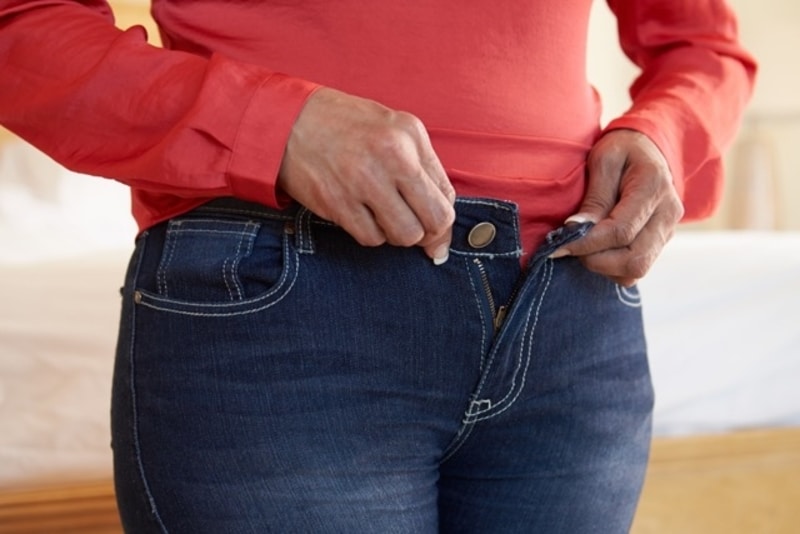Regardless of whether you seek alternative cancer treatments or are focused on conventional modalities, your health is paramount as you fight the disease.
If you need another reason to up the ante against the battle of the bulge, researchers at the American Cancer Society and the Harvard T.H. Chan School of Public Health are going all-in: It’s never too late to benefit from losing weight.
The study suggests that sustained weight loss – even modest amounts – is associated with lower breast cancer risk for women aged 50 years or older. (1) Being overweight is a known risk for breast cancer after menopause, but this is the first large study to show that losing weight can reduce this risk. The findings did not include women using postmenopausal hormone therapy.
Three main factors determine your weight:
- How many calories you consume during the day.
- How many calories you burn off through daily exercise.
- Your age.
If you overeat and exercise too little, you’re likely to carry excess weight – including belly fat. Many women also notice an increase in belly fat as they get older – even if they aren’t gaining weight. This is likely due to a decreasing level of estrogen, which appears to influence where fat is distributed in the body.
Researchers looked at 180,885 women from 10 studies in the Pooling Project of Prospective Studies of Diet and Cancer. They recorded the women’s weights three times over about 10 years: when they enrolled, about 5 years later, and about 5 years after that. Weight changes of 2 kilograms or less (about 4.4 pounds) were counted as stable.
They found the more weight women lost, the lower their risk of breast cancer. Losing even a small amount of weight lowered risk.
- Women who lost 2 to 4.5 kg (about 4.4 to 10 lbs.) had a 13% lower risk than women with stable weight.
- Women who lost 4.5 to 9 kg (10- 20 lbs.) had a 16% lower risk.
- Women who lost 9 kg or more (20+ lbs.) had a 26% lower risk.
- Women who lost 9 kg or more and gained back some (but not all) of the weight had a lower risk of breast cancer compared with those whose weight was stable.
Breast cancer prevention may be a potent weight loss motivator for two-thirds of American women who are overweight or obese.
You can measure your waist to determine if you have too much belly fat:
- While standing, place a tape measure around your bare stomach, just above your hipbone.
- Pull the tape until it fits snugly but doesn’t push into your skin. (Make sure the tape measure is level all the way around.)
- Relax, exhale, and measure your waist (resisting the urge to suck in your stomach).
- For women, a waist measurement of more than 35 inches indicates an unhealthy concentration of belly fat and a higher risk of health problems.
To battle belly fat, keep these things top of mind: eat a healthy diet (and keep portion sizes in check), cut out sugary beverages, and include physical activity in your daily routine.
“Our results suggest that even a modest amount of sustained weight loss is associated with lower breast cancer risk for women over 50,” said Lauren Teras, Ph.D., lead author of the study. “These findings may be a strong motivator for the two-thirds of American women who are overweight to lose some of that weight. Even if you gain weight after age 50, it is not too late to lower your risk of breast cancer.”
If you are fighting cancer and want a healthier lifestyle, but finances are keeping you from changing your diet or embracing a fitness regimen, there are options to cover the cost of treatment. 2Cancer.com assists and helps patients financially manage their cancer care, whether you seek an alternative cancer treatment or conventional ways.
2Cancer.com will evaluate an existing life insurance policy to possibly convert it into much-needed cash to pay for cancer treatment. Regardless of which treatment you choose, having the financial means to fight cancer is vital.
Citations
(1) Sustained weight loss and risk of breast cancer in women ≥50 years: a pooled analysis of prospective data. https://academic.oup.com/jnci/advance-article/doi/10.1093/jnci/djz226/5675519

